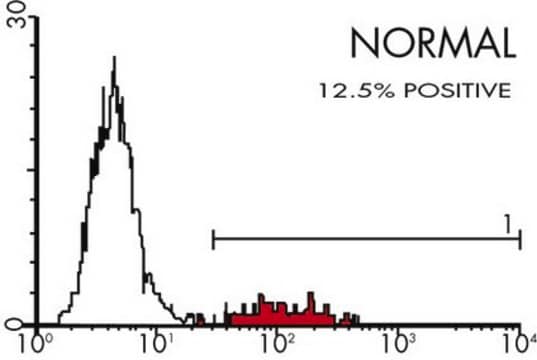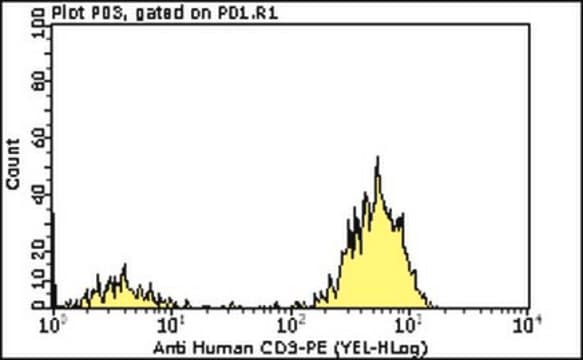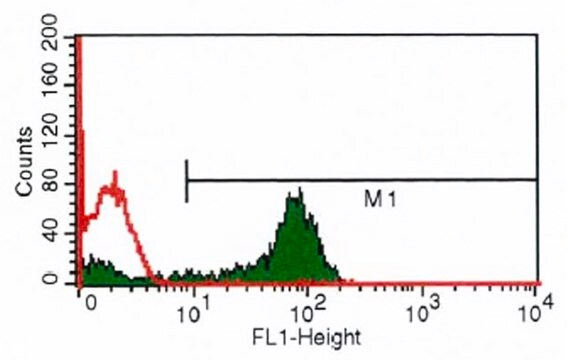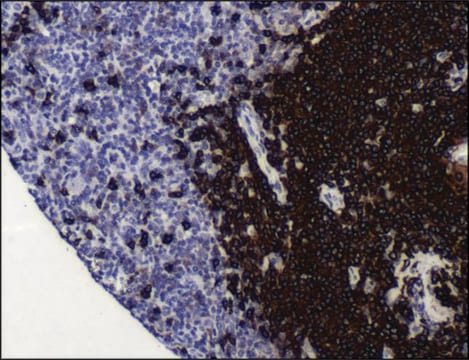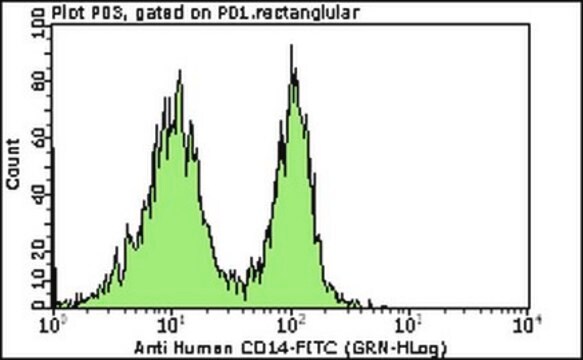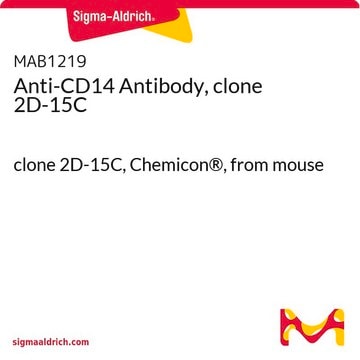FCMAB169C5
Milli-Mark Anti-CD3 -PECy5 Antibody, clone UCHT1
clone UCHT1, Milli-Mark®, from mouse
Synonyme(s) :
T-cell receptor
About This Item
Produits recommandés
Source biologique
mouse
Niveau de qualité
Conjugué
PE-Cy5
Forme d'anticorps
purified immunoglobulin
Type de produit anticorps
primary antibodies
Clone
UCHT1, monoclonal
Espèces réactives
human
Fabricant/nom de marque
Milli-Mark®
Technique(s)
flow cytometry: suitable
Isotype
IgG1κ
Numéro d'accès NCBI
Numéro d'accès UniProt
Conditions d'expédition
wet ice
Modification post-traductionnelle de la cible
unmodified
Informations sur le gène
human ... CD3E(916)
Description générale
Spécificité
Immunogène
Application
Inflammation & Immunology
Immunoglobulins & Immunology
Qualité
Description de la cible
Forme physique
Stockage et stabilité
Remarque sur l'analyse
Human Lymphocytes
Autres remarques
Informations légales
Clause de non-responsabilité
Not finding the right product?
Try our Outil de sélection de produits.
Code de la classe de stockage
10 - Combustible liquids
Classe de danger pour l'eau (WGK)
WGK 2
Point d'éclair (°F)
Not applicable
Point d'éclair (°C)
Not applicable
Certificats d'analyse (COA)
Recherchez un Certificats d'analyse (COA) en saisissant le numéro de lot du produit. Les numéros de lot figurent sur l'étiquette du produit après les mots "Lot" ou "Batch".
Déjà en possession de ce produit ?
Retrouvez la documentation relative aux produits que vous avez récemment achetés dans la Bibliothèque de documents.
Notre équipe de scientifiques dispose d'une expérience dans tous les secteurs de la recherche, notamment en sciences de la vie, science des matériaux, synthèse chimique, chromatographie, analyse et dans de nombreux autres domaines..
Contacter notre Service technique
